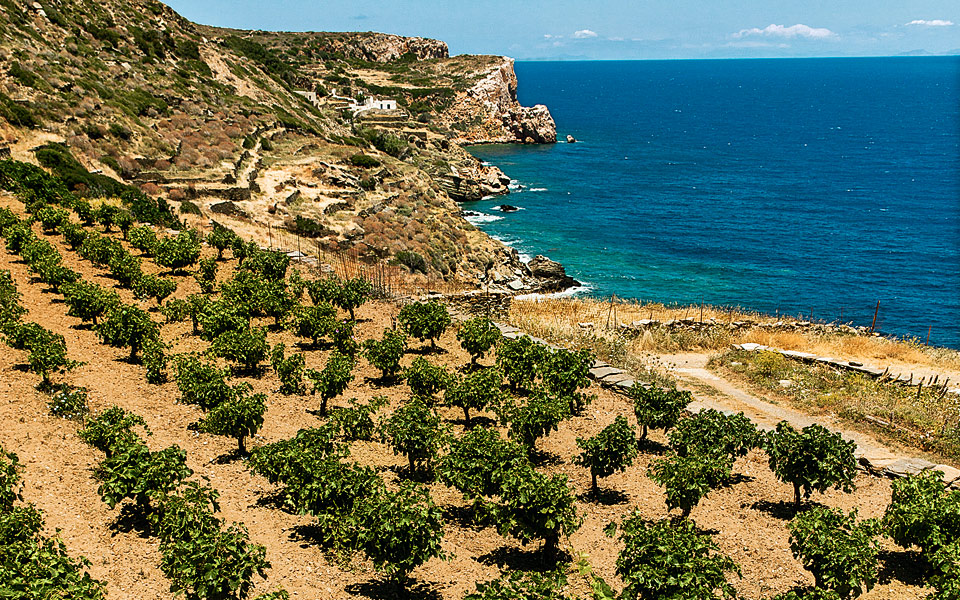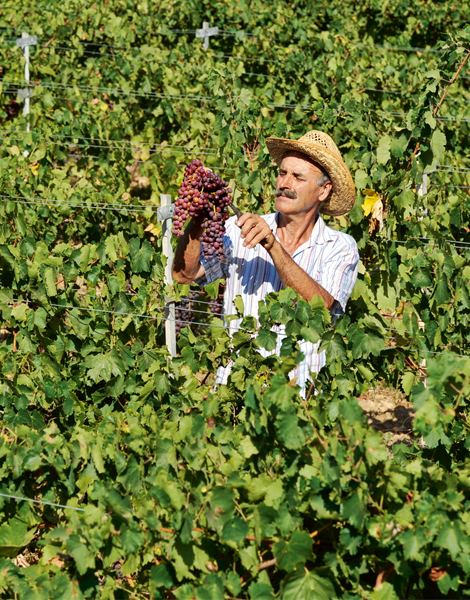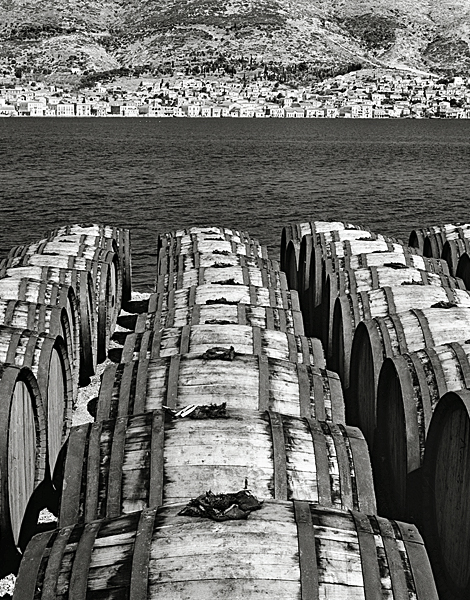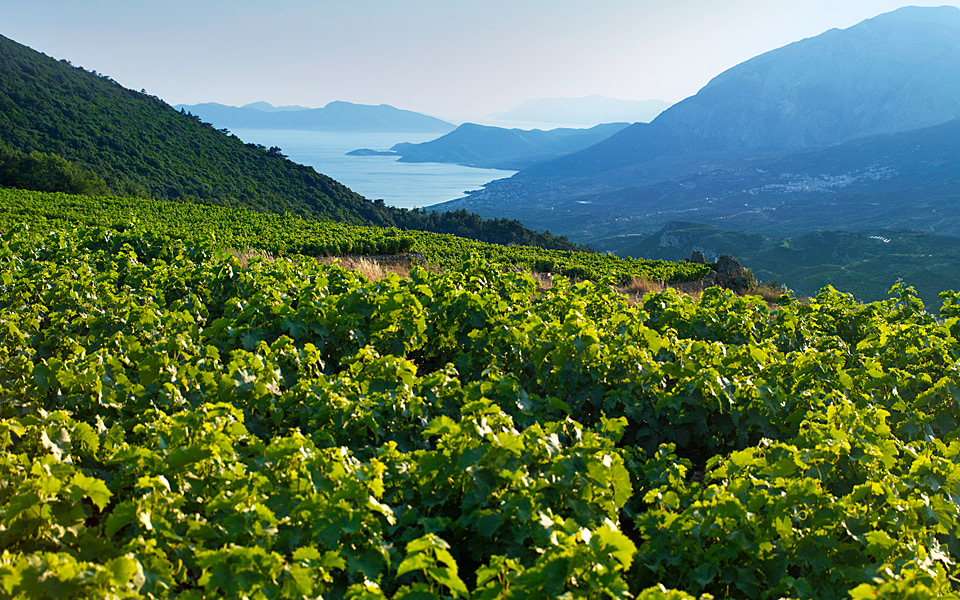The Aegean Sea comprises more than 200 islands – roughly one-tenth of which are populated – and has a total of around 4,500 hectares of vineyards. In the north, the winemaking leaders are Limnos and Samos, both globally renowned for their dessert wines. The former boasts the sweet PDO Lemnos and Lemnos Muscat (made from the Muscat of Alexandria variety), while the latter has earned PDO status exclusively for its Muscat blanc a petits grains.
Even though Samos was not quite as well known in antiquity as, say, Icaria, with its famed Pramnian wine, is has succeeded in building a reputation for its sweet vintages. The island’s wine-growing zone is among the most beautiful in Greece, with terraced vineyards climbing almost 1,000m up the slopes of Mount Ambelos (literally, grape vine). All the island’s growers hand their crop over to the local cooperative, the island’s exclusive producer. It makes a range of different wines, from budget-friendly labels with excellent value for money, to incredible sweet wines that come in only a few dated bottles, such as the scintillating 1975 and 1980 Nectar that make most other dessert wines pale in comparison.

© Dimitris Vlaikos

© Vaggelis Zavos

© Benaki Museum / Photo Archive
In the southern Aegean, and specifically in the central Cyclades island cluster, Paros is an important winemaker with two PDO designations: Paros and Malvasia Paros. PDO Paros is also the only one allowed by Greek legislation to mix red and white varieties to produce a red. The Monemvasia variety plays a key role in Malvasia wines, which are an attempt at the revival of the historic Malmsey. The composition must be at least 85 percent Monemvasia and the rest Assyrtiko.
The last two PDO zones in the Aegean islands belong to Rhodes, in the Dodecanese cluster. Rhodes is famous for its sparkling wines, with the whites based on Athiri and the dry reds on Mandilaria. PDO Muscat of Rhodes is a dessert wine that is fast gaining more fans.
That these four islands are currently in the limelight does not mean that interesting things are not underway elsewhere in the archipelago. Notable inroads are, in fact, also being made in Tinos with Assyrtiko and Mavrotragano, in Chios, Kos and also in Lesvos, where the volcanic soil favors the native Chidiriotiko variety.











